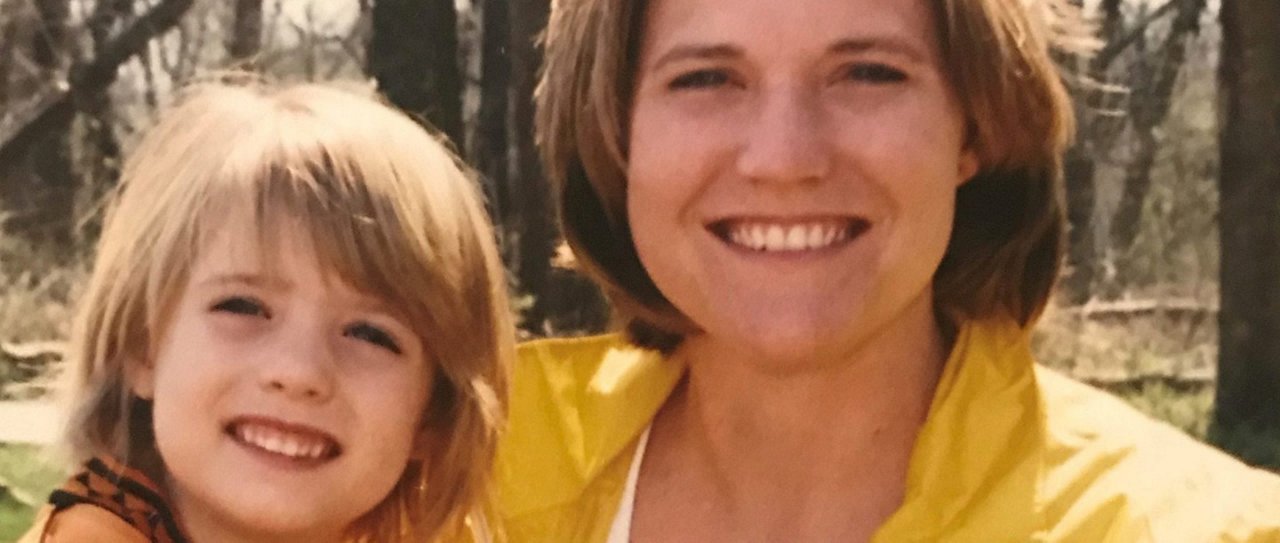Fighting breast cancer with genetic testing

Genetic testing continues to revolutionize the way oncologists treat breast cancer. New studies have emerged showing that genetic tests can help determine whether chemotherapy is necessary for individuals in the early stages of breast cancer.
Armed with this vital information, early detection, and treatment other than chemotherapy may offer revolutionary treatment for women. It can improve their quality of life and their health.
Genetic testing may be helpful for women diagnosed with breast cancer. For me, knowing was better than wondering.
My mom didn’t think about being a carrier of BRCA2. Genetic testing wasn’t something many people thought to do. She was diagnosed with stage four breast cancer at 29, I was only two years old. After reading journal entries from my mom, I realized that I had to take charge of my healthy outcome. It was up to me to fight!
 Emily’s family while participating in a Breast Cancer Awareness event.
Emily’s family while participating in a Breast Cancer Awareness event.
BRCA1 and BRCA 2 gene mutations
If you have a family or personal history of ovarian or breast cancer, genetic testing can be done to determine if you are a carrier of the BRCA1 or BRCA2 (Breast Cancer susceptibility) gene mutation. BRCA1 and 2 are tumor suppressors that repair damaged DNA when functioning normally.
Sometimes the suppressor is mutated, which may lead to damaged DNA being incorrectly repaired. This may make the cells susceptible to developing cancer. A recent study found that 72% of BRCA1 and 69% of BRCA 2 carriers will develop breast cancer before they are 80.
A legacy, my mother's bravery
I grew up as an advocate for breast cancer awareness. I watched my mother fight!
I’ve attended Relay for Life, sporting a pink ribbon during the month of October, for as long as I can remember. As an athlete, I’ve always encouraged my teammates to wear pink laces during games.
 Emily Moushegian
Emily Moushegian
My mom’s fight was inspiring. She was dedicated to awareness efforts and tirelessly advocated to help find a cure.
In 2009, she passed away after 10 year battle with the disease. For 10 years, she wrote to me in a journal that she filled with wonderful memories. She also wrote about her journey with breast cancer. Her lessons and her words give me courage.
In one entry, she explained that she was a carrier of BRCA2 and that my grandmother and great-grandmother were carriers too. She urged me, and my younger sister, to receive a genetic test as soon as we turned eighteen. Scared and confused, it took awhile for me to realize that it was better to know.
Knowledge is power
Knowing that I had a 50% chance of being a carrier, I received the testing and the results showed that I was positive for BRCA2. I was in shock, but a wave of relief rushed over me when I remembered what this meant.
Now, I am equipped with the knowledge that allows me to get on a preventive treatment plan. With the goal of detecting breast cancer early, I receive MRI’s annually and find comfort in knowing that if cancer appears in my body, it will be detected and stopped before it can metastasize. That is powerful.
My grandmother once told me that if my mother had known that she carried the genetic mutation BRCA2, she would still be here today.
Just like my mother urged me, I urge anyone with a family history of breast or ovarian cancer to talk to a genetic counselor. Find out if you are a candidate for testing. Knowledge is power and early detection may save your life.
Blue Cross and Blue Shield of North Carolina does not discriminate on the basis of race, color, national origin, sex, age or disability in its health programs and activities. Learn more about our non-discrimination policy and no-cost services available to you.
Information in other languages: Español 中文 Tiếng Việt 한국어 Français العَرَبِيَّة Hmoob ру́сский Tagalog ગુજરાતી ភាសាខ្មែរ Deutsch हिन्दी ລາວ 日本語
© 2024 Blue Cross and Blue Shield of North Carolina. ®, SM Marks of the Blue Cross and Blue Shield Association, an association of independent Blue Cross and Blue Shield plans. All other marks and names are property of their respective owners. Blue Cross and Blue Shield of North Carolina is an independent licensee of the Blue Cross and Blue Shield Association.




